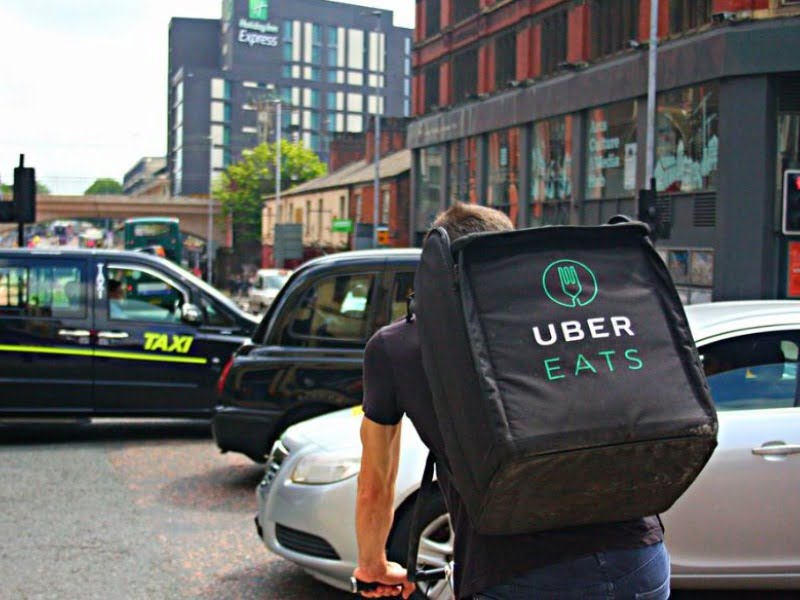The Fair Work Commission has ruled that UberEats drivers are not employees, with the transport union now demanding the federal government step in to regulate the gig economy.
UberEats food delivery rider Amita Gupta was removed from the app early last year after being 10 minutes late with a delivery. Ms Gupta lodged an unfair dismissal case with the Fair Work Commission, but this was rejected as she was not ruled to be an employee.
Backed by the Transport Workers’ Union, Ms Gupta then appealed this decision at the Fair Work Commission again late last year, arguing that despite Uber’s label, she was an employee and should be able to bring forward an unfair dismissal case.
The case struck at the heart of the business model of most gig economy companies, which classify workers as contractors rather than employees, meaning they don’t have to provide any benefits or support, such as sick leave or superannuation.

But on Tuesday the Fair Work Commission again rejected Ms Gupta’s case, arguing there are three “critical” factors which “point decisively” to her not being an employee. These were that UberEats had no control over when or how the work was performed, that Ms Gupta was allowed to work for other food delivery rivals, and that she was not required to wear a uniform or logo.
“We do not consider that Ms Gupta’s relationship with [UberEats] bore a number of the usual and essential hallmarks of an employment relationship, namely a requirement to perform work at particular times or in particular circumstances, exclusivity when work is being performed and presentation to the public as serving in the business,” Fair Work Commission president Justice Iain Ross said in the ruling.
But Justice Ross did criticise aspects of UberEat’s business model and dealings with its drivers and riders, saying that “some matters lean in favour of a finding of employment”.
These include that drivers do not use any particular trade or skill when conducting the work, the delivery fee is set by Uber and not negotiable, and they are unable to delegate any work.
“There was no aspect of her work which would permit it to be characterised as the carrying on of an independent business or enterprise: she had no means of independently expanding her customer base or generating additional work within the UberEats business or of establishing goodwill with any of the restaurants or customers with whom she dealt,” Justice Ross said.
Transport Workers Union national secretary Michael Kaine pointed to these aspects of the ruling, hailing it as a victory against the gig economy giant.
“This judgement goes further than we have ever seen in Australia in terms of tearing down Uber’s elaborate business model and exposing it as a sham. It states what is already clear to those who work in Uber and those who use its service: that Uber is a transport service that has responsibilities to its workers, restaurants and the public who use its app,” Mr Kaine said.
“Uber operates a model of use and abuse when it comes to its workers. It rips them off, refuses to pay them minimum rates, sick leave and sacks them without warning or the chance to appeal.”
In light of the Commission’s ruling and the ongoing COVID-19 pandemic, the federal government needs to quickly step up to the plate and regulate the gig economy to protect the workers, Mr Kaine said.
“Even in the middle of a pandemic Uber won’t protect its workers and is offering paltry amounts to workers needing to isolate,” he said.
“We need to regulate this sector urgently to stop this exploitation. The federal government must act on behalf of workers like Amita and thousands of people like her.”
Photo credit: Flickr
Do you know more? Contact James Riley via Email.

